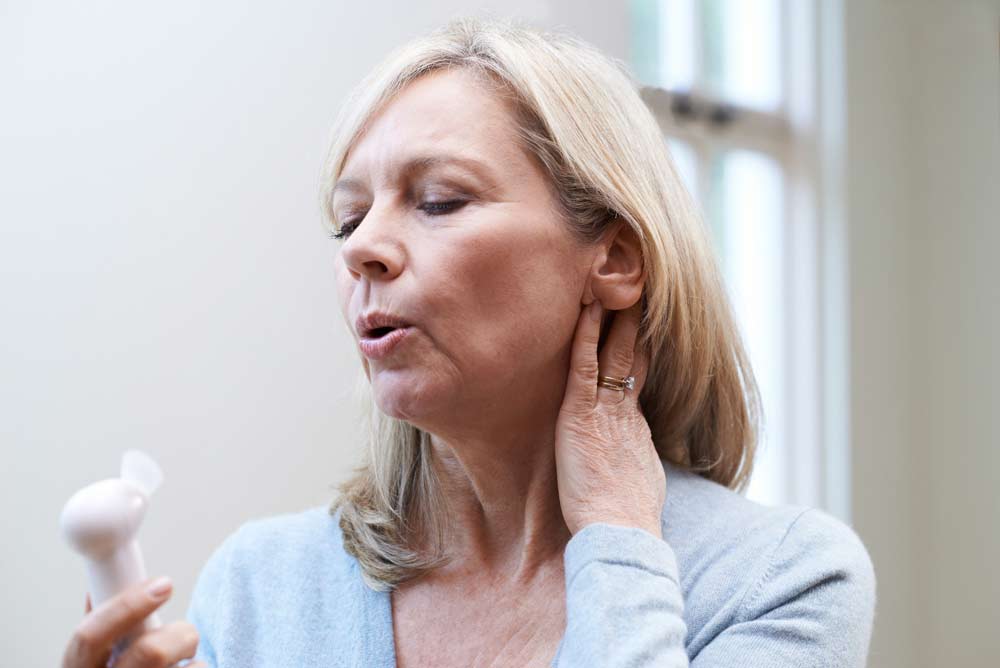In the months or years leading up to your menopause, you may experience a handful of symptoms that are pre-warning what's to come. This process is known as peri-menopause, and the symptoms affect up to 75% of peri-menopausal women.
What are the Symptoms of Menopause?
Menopause is a natural process, but the symptoms may affect your emotional health. In the months or years that lead up to menopause (perimenopause), you may experience:

- Irregular periods
- Hot flushes
- Vaginal dryness or discomfort during sex
- Chills
- Sleep issues
- Night sweats
- Reduced sex drive (libido)
- Weight gain and slowed metabolism
- Mood changes
- Loss of breast fullness
- Thinning hair or dry skin
- Problems with memory or concentration
Symptoms are different for every woman. However for many, changes to your period cycle is the main indicator that menopause is on the horizon. Sometimes, menstrual periods will skip a month, or several, and then return. You may also note that your periods have shorter cycles, so they may become closer together. Despite this, becoming pregnant is still a possibility.
It's important to visit your doctor frequently during and after menopause, and you should always seek medical advice if you suffer vaginal bleeding after menopause.
Sources
Dalal, P.K., Agarwal, M. (2015) Postmenopausal Syndrome [online]. Indian Journal of Psychiatry. 57(2), pp. 222-232 [viewed 31/08/2018]. Available from https://www.ncbi.nlm.nih.gov/pmc/articles/PMC4539866/
Mayo Clinic (2017) Menopause [online]. Mayo Clinic [viewed 30/08/2018]. Available from https://www.mayoclinic.org/diseases-conditions/menopause/symptoms-causes/syc-20353397
NHS (2015) Menopause [online]. NHS [viewed 30/08/2018]. Available from https://www.nhs.uk/conditions/menopause/



